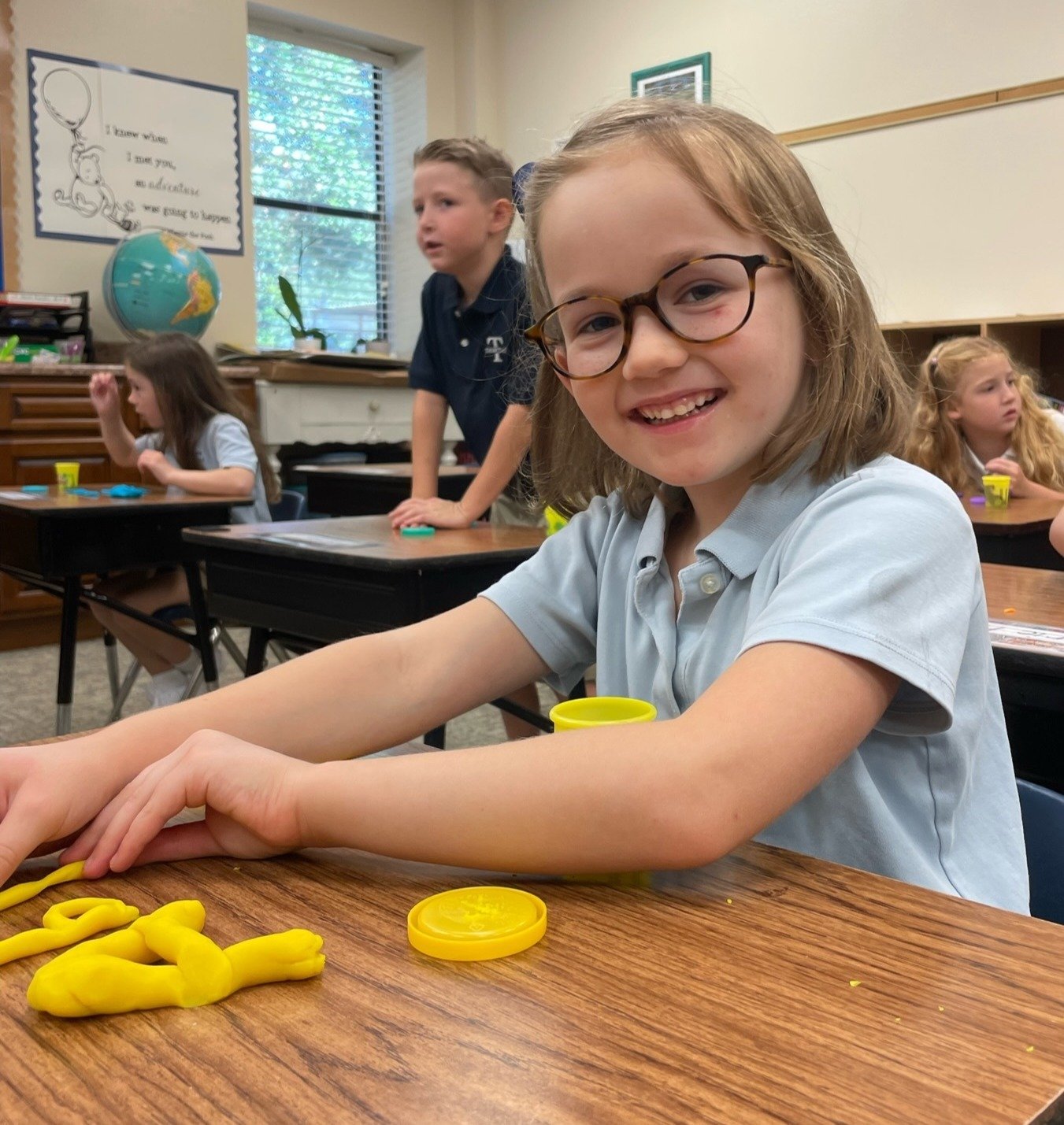Shh. Don’t tell the kiddos, but the summer is winding down. There are certainly a few students out there who can hardly wait for school to start, but the vast majority may not even want to think about school before the alarm goes off on that first morning back. The former will be ready to go, but the latter will spend the first three weeks of school re-acclimating themselves to the speed and rigor of academic life. Fortunately, there are a few things parents can do to prepare students’ hearts and minds to return to school in the fall.
Five Exercises to Prepare Your Grammar School Student for Returning to School
Topics: Blog Posts, School Life, Parenting, Parent Involvement
One of my favorite summer songs, “Summertime,” was composed by Gershwin in 1934 for the opera Porgy and Bess but it wasn’t until the first lady of song, Ella Fitzgerald, recorded the lullaby in Berlin in 1968 that the song came to be identified with the relaxingly smooth vibe that marks the three months between May and September.
Topics: Blog Posts, School Life, Parenting, Parent Involvement
Kindergarten has a way of sneaking up on young parents. After all, it seems like just yesterday that you brought your sweet bundle of joy home from the hospital and now she is starting school in the fall. How are parents to know if their child is ready for this huge step? Here are six simple steps to help you answer that question for yourself. But remember, if your child isn’t ready, relax, August is still several months away. There is enough time this summer to get ready, if you have a plan and a willingness to work it.
Topics: Blog Posts, Parenting, Parent Involvement
Last time out, we ended our discussion with a list of questions. We established the fact that there is no magic in those questions. They are merely questions that leave space for your child to tell his story in a way that he hasn’t even thought of yet. You can think of other questions like these that will help peel back the layers, and you can change them to fit the moment. The point is to get to the sin that motivated the action. For example, striking someone in anger is a sinful behavior, but oftentimes, there is something else motivating that anger and violence, whether pride or envy or covetousness or something else. If we don’t work to get at that sin that is rooted down in the heart, it is going to continue to manifest itself on the surface somehow—this time it was anger and violence, but next time, it could be something different.
Topics: Blog Posts, Parenting, Scripture, Christian Education, Parent Involvement, Teaching
Picking up the thread from a couple of weeks back, I want to discuss correction a little further. We have talked about what correction is, why we must correct, and why our children don’t always love correction. Now, we’ll examine correction that addresses patterns of sin or even besetting sins in our children's lives.
Sometimes, our children have a bigger problem putting off sin than we had hoped. Perhaps it begins with a single event. We correct and move on. Then the very next week, here we are again in the same situation. Coincidence? Maybe. You correct again and move on. But oh, no! In a matter of days, here we are again. Now, to be fair, there are so many variables here that it’s hard to reduce this to a few brief words. For example, the type of sin dictates how we address it. Is it forgetfulness, gossip, disobedience, disrespect, unkindness, laziness? And there are plenty of other variables, as well, that have a bearing on how we proceed. We can’t get into all those methods here, so we’ll stick to a conversation about principles.
Topics: Blog Posts, Parenting, Scripture, Christian Education, Parent Involvement
Over the past couple of posts, I have attempted to define biblical correction and to show that God requires it of us. Not only does he require adults to correct ourselves with His word as the standard, but also, He requires us to correct our children, “to put them right,” according to the standard found only in God’s word. Seems like a slam dunk, right? Well, maybe not exactly.
If your children sometimes bristle at correction, or they listen attentively and then go on doing what they were doing, or they give you a thousand excuses for why their behavior was justified and never want to own up to any wrongdoing, or they are compliant when you are near but behave like the devil when you are away, then read on.
Topics: Blog Posts, Parenting, Scripture, Christian Education, Christian Living, Parent Involvement
In our last blog post, we talked about what correction of children is and touched on a few reasons why it is no longer common. This week, we’ll dig a little deeper into what biblical correction is as we seek answers to why this correction is so important.
Topics: Blog Posts, Parenting, Christian Education, True Education, Christian Living, Parent Involvement, Social Issues
We’ve all seen it. You’re in the checkout line at the grocery store when you hear a child arguing with his mother in the line ahead of you. He wants some candy, a toy, a drink, or who knows what? His mother doesn’t want him to have it, so she begins with a flat “No.” He balks, stomps his foot, whines. Mom redirects, “Look at this nice cereal Mommy is buying for you.” His whines become wails. Mom ignores. He falls to his knees, wailing louder now. Mom quickly drops to his level and begins to speak sweetly in an attempt to reason with him, “Honey, this is not the way we behave in public; you are causing quite a scene. Get up, now.” He throws himself face-down and begins thrashing his arms and legs, wailing all the while. Mom rises, grabs the item her child wants off the shelf and thrusts it into his hands. If she acknowledges you at all, she likely says, “He usually doesn’t act like this; he’s just hungry (or tired, sleepy, out of his routine, having a bad day, mourning the loss of a stuffed animal, et cetera).”
Topics: Blog Posts, Parenting, Christian Education, True Education, Christian Living, Parent Involvement, Social Issues







.png)


